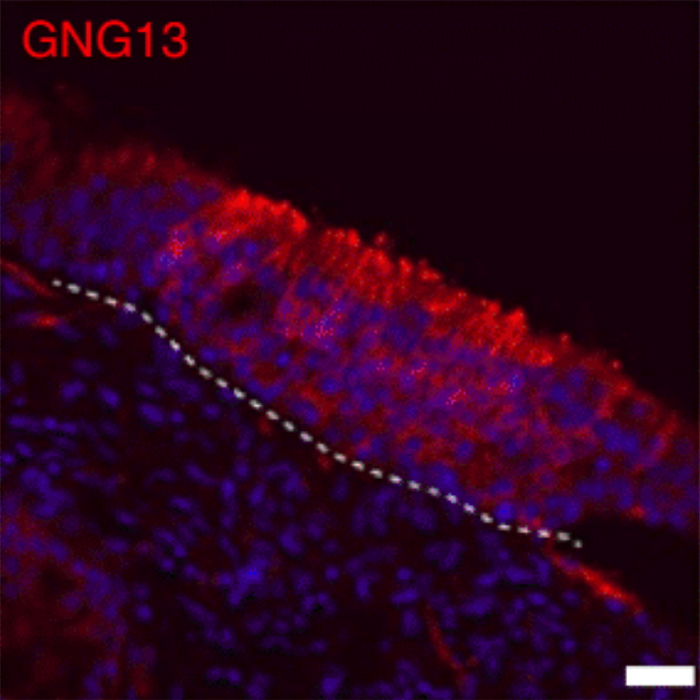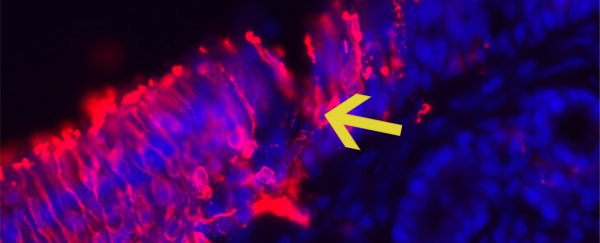Our noses appear to be home to thriving 'neuron nurseries', according to new research. It's a curious finding, given recent investigations on whether our brains keep making new neurons as we become adults; some evidence points to us growing these nerve cells well into old age.
But we don't really know whether such neurogenesis could be found in other busy nerve bundles - such as the nose. This latest study suggests the olfactory neuroepithelium in the human nose seems to carry on producing neurons in our adulthood, based on an analysis of human tissue taken from seven middle-aged human donors.
Not only does this result give scientists a fresh insight into our body's intricate neuron-producing processes, it also hints at new ways to treat conditions when these neurons may be badly damaged, or die off due to old age.
"We do not fully understand why people lose their sense of smell, which can occur for many reasons, and our data sets provide a wealth of information about the cell populations present in adult olfactory tissue," says ear, nose and throat doctor Brad Goldstein from the Duke University Medical Center.
"This is an important step in developing treatment strategies for conditions when this tissue may be damaged."

Neurons shown in red in human nasal tissue. (Durante, etal., Nature Neuroscience, 2020)
Using single-cell RNA sequencing, the researchers looked at 28,726 different cells in total, finding that more than half were 'baby' or immature neurons produced by neural stem cells – and their youthfulness suggests the neurons were produced inside the tissue itself.
In fact, the team found neurons at several stages of life in the nose tissue. While mouse studies have suggested some nerve regrowth in the nose was possible, the proportion of new cells in human noses was still surprising.
As neurons are responsible for transmitting information to other cells and muscles, when something goes wrong with these cells it can cause big problems – as seen with diseases such as Alzheimer's.
"It will be very useful to use this window to analyse samples from people with conditions in which the nervous system has degeneration, such as Alzheimer's disease," says Goldstein.
"Alzheimer's is of particular interest, since these patients lose their sense of smell quite early in the disease process, and we have few treatments for Alzheimer's disease. So, it may make sense to look carefully at regions of the olfactory system in these patients."
While the new study supports the idea that this nasal nursery is capable of churning out new neurons as we get older, further research will be needed to make sure – we haven't yet actually observed them being made.
Scientists are continuing to make strides forward in their understanding of how neurons operate and communicate with each other, offering insight into the workings of the complex biological computer that is the human body.
This new study does align with findings from last year, which showed neurons at different stages of maturity deep within the human brain. It seems we can keep producing these cells as we get older – the next question is how.
"Because the nose is exposed to the external environment, it might be possible we could one day collect these neuronal stem cells from patients and use them to treat their own brain disorders," says microbiologist Hiroaki Matsunami from Duke University Medical Center.
"It is not outside of the realm of possibility."
The research has been published in Nature Neuroscience.
